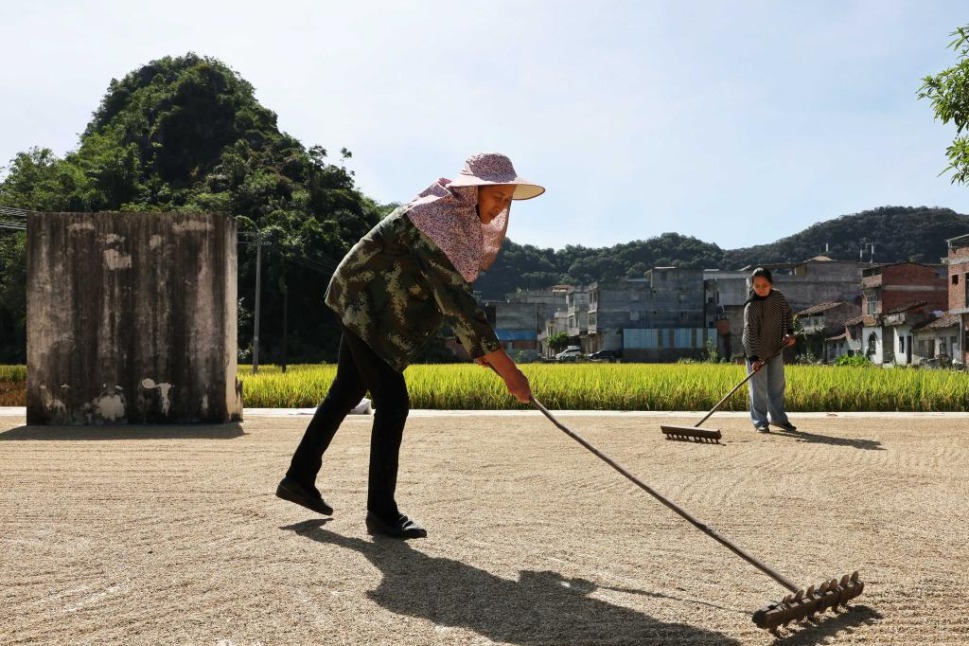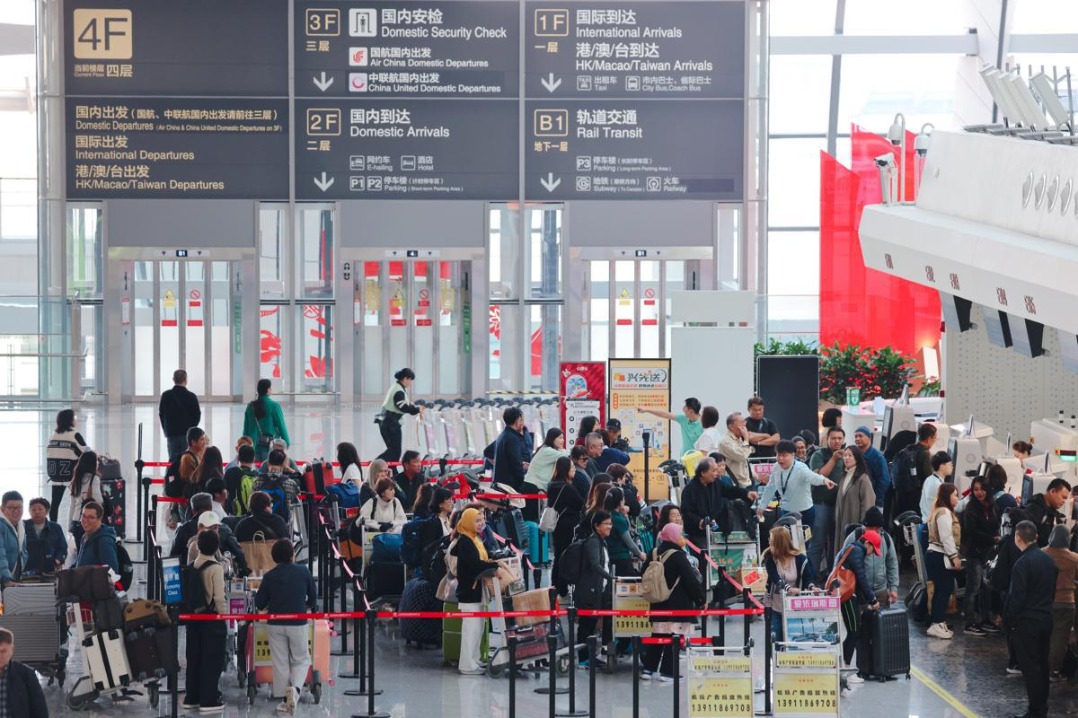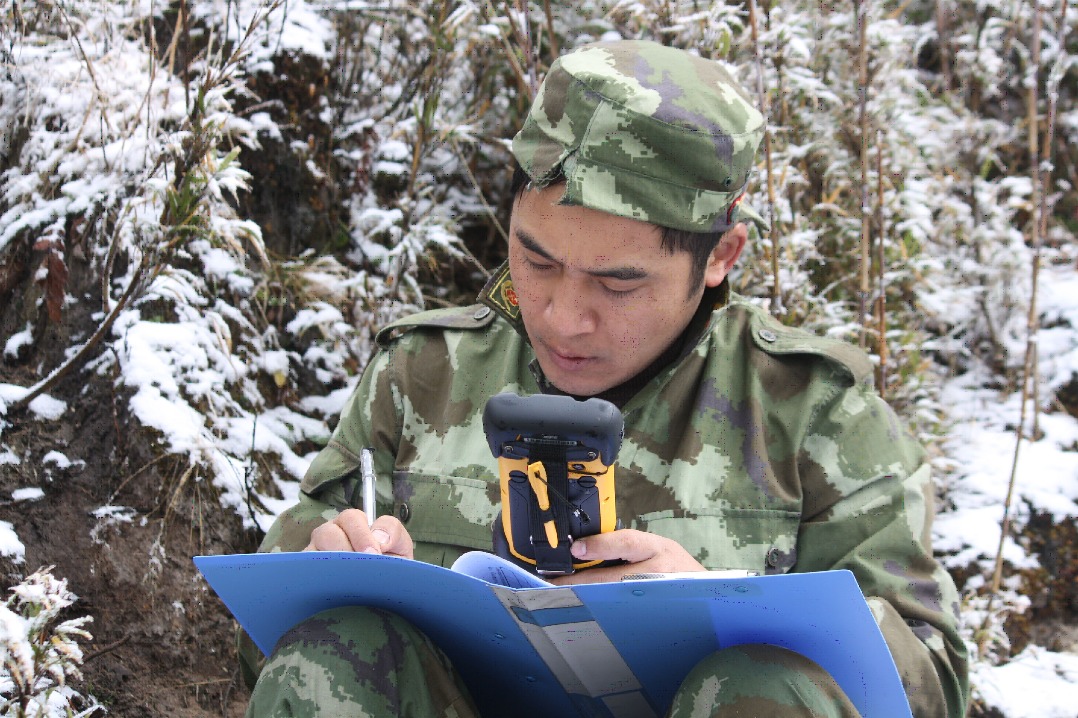Talks aim to expand drug coverage by insurance

Most commonly used cancer drugs have been included in China's basic medical insurance program, and the government is continuing negotiations on the price of expensive drugs with the aim of including them, the country's top medical security authority said.
China has included 34 drugs that treat major cancers, such as lung, breast, stomach and rectal cancer, in the national basic medical insurance program after successful price negotiations with pharmaceutical companies in the past three years, the National Healthcare Security Administration said recently.
"All the drugs are clinically proven to be effective, and are in high demand by patients," it said.
The prices of most of the drugs have been cut by more than half, and patients will spend even less after reimbursement from the medical insurance fund, the administration said.
The pace of progress has been accelerating. Two cancer drugs were approved for inclusion in the medical insurance program after their prices were cut by more than 50 percent in 2016, while 15 were approved in 2017 and 17 were included in October.
The administration also has recognized significant demand from patients with other serious diseases. It is considering engaging in price negotiations on drugs used to treat those patients this year, the administration said.
"The number of patients with some other serious diseases such as heart disease and hepatitis B is also high, and they've also appealed for more affordable drugs," it said.
The administration said it will continue to try to include new cancer drugs in the program after they are proven effective.
China launched pilot negotiations with pharmaceutical companies on reducing the prices of cancer drugs and drugs that treat serious diseases in 2015. In return for cutting prices, the companies would see their sales boosted by inclusion in the national insurance program.
Many cancer drugs, most of which are imported, were more expensive in China than in other countries, for reasons such as higher tariffs and high distribution costs. That placed great financial burdens on cancer patients. Some were forced to buy cheaper generic drugs from India through the internet, which could be risky, officials from the National Health Commission said.
In July, Dying to Survive, a film based on real events, sparked heated debate over the dilemma faced by many cancer patients. It tells the story of Lu Yong, a wealthy businessman in Wuxi, Jiangsu province, who got leukemia in 2002 and initially bought Gleevec, a patented drug developed by Swiss company Novartis, for his treatment.
But a month's treatment with the drug cost about 24,000 yuan ($3,535) in China, so he turned to a much cheaper generic version produced in India. He also bought the generic drug for many other leukemia patients he knew after they asked him to do so, even though he faced great legal risks because the generic drug is not approved for sale in China. He was arrested, but he was not prosecuted after an outcry from patients.
Many experts said the case highlighted the need to reduce cancer drug prices and include them in the medical insurance program so cancer patients can afford them. The prices of the 17 drugs included in October fell by about 57 percent on average, the administration said.
The price of Erbitux, a drug produced by German pharmaceutical company Merck to treat rectal cancer, was reduced by 69 percent, from around 4,200 yuan a bottle to 1,295 yuan.
In May, the authorities lifted import tariffs on 103 anti-neoplastic drugs, which target tumors, and significantly reduced the value-added tax levied on them.
There are an estimated 3.8 million new cancer cases in China every year, with cancer becoming a leading cause of death, with the incidence of some cancers, such as lung and breast cancer, rising rapidly, the Cancer Hospital at the Chinese Academy of Medical Sciences said in a report last year.
The National Medical Products Administration, China's top drug regulator, said in January that it has accelerated inspection and approval procedures for new drugs developed overseas that are urgently needed by Chinese patients. A number of them, including cancer drugs, will be available on the domestic market this year.
Shi Lichen, founder of Beijing Dingchen Consultancy, a medical consulting company in Beijing, said cancer drugs have been the priority in price negotiations over the past few years due to the increasing number of cancer patients and the higher prices of such drugs.
"Following studies over the past few years, the authorities may expand price negotiations to drugs treating other serious diseases such as cardiovascular diseases," he said. "Such negotiations will become a regular practice by the administration."
In many European countries and the United States, price negotiations are routine between commercial insurance companies and pharmaceutical companies. But in China, such negotiations have been held between the government and pharmaceutical companies only in the past few years, Shi said. "Lowering prices of costly drugs can also help check rapid increases in costs by the medical insurance fund in China," he said.
By buying drugs in bulk from around the world, the authorities will stimulate more domestic producers to improve drug research and development, Shi said.
- 'Bauhinia Cup' ignites patriotism among Hong Kong students on PRC's 75th anniversary
- Over 50,000 in China's Hainan evacuated as Typhoon Trami grows
- Xi congratulates Chapo on election as Mozambique's president
- 5.5-magnitude quake hits China's Xinjiang: CENC
- 2024 China International Digital Economy Expo highlight digital industrialization achievements
- Deliberately dodging fact of Taiwan's return to China exposes Lai's nature of seeking 'independence': mainland spokesperson




































